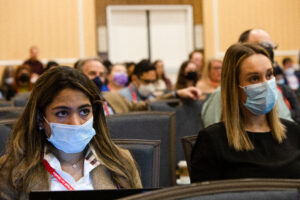
Time to take a deeper dive into the other resources available at the AHCJ website. On the resources page of the medical studies core topic area, for example, we just posted a link and synopsis of a great tip sheet blog from Denise-Marie Ordway of Harvard University’s Shorenstein Center on Media, Politics and Public Policy.
Think of “10 things we wish we’d known earlier about research: Tips from Journalist’s Resource” as a booster shot every journalist needs at least once a month to stay sharp and skeptical. The tips may not be revolutionary, but they are among the many nuggets of wisdom that one picks up over the years. They may sound familiar to seasoned veterans of reporting on medical research but are ones most worth repeating and reinforcing.
For example, we can never be reminded enough that if you don’t understand research methods or statistics in a study, don’t ignore them or gloss over them. Ask someone who does.
Other tips may seem obvious to veterans, but are eye-opening to those brand new to reporting on medical studies, such the reminder that “significant” has a very different meaning in the context of research than in everyday language. I have made it a habit to never use the word “significant” in my reporting or during interviews with researchers – unless I specifically mean “statistically significant,” (even if I don’t mention “statistically”). Instead, in non-statistical contexts, I will use words such as “substantial,” “notable,” “relevant” or “important.”
The tip blog also covers places to find studies beyond just PubMed and why academic research is such an important resource for journalists when working on just about any story. For those new to reporting on scientific studies who feel intimidated about reaching out to researchers, this tip sheet points out what I’ve found in my work as well: Researchers do enjoy discussing their work. It is rare that I come across a scientist who doesn’t want to talk. (Though I have unfortunately encountered several who want to talk but are restricted by their communications department – usually federal.) If anything, your potential source may have limited time, so I always include both my deadline and how long I expect the interview to take, erring on the side of overestimating and keeping the interview to less than 30 minutes.
Ordway’s blog also draws attention to some rookie mistakes when reporting on research, such as relying too heavily on reports or white papers from think tanks or special interest groups without applying a sufficiently skeptical approach. That said, research coming out of prestigious schools or appearing in a peer-reviewed journal shouldn’t be taken only at face value either. Recall the scandal still playing out at Cornell’s Food Lab and the prolific, media-friendly researcher at the helm.









